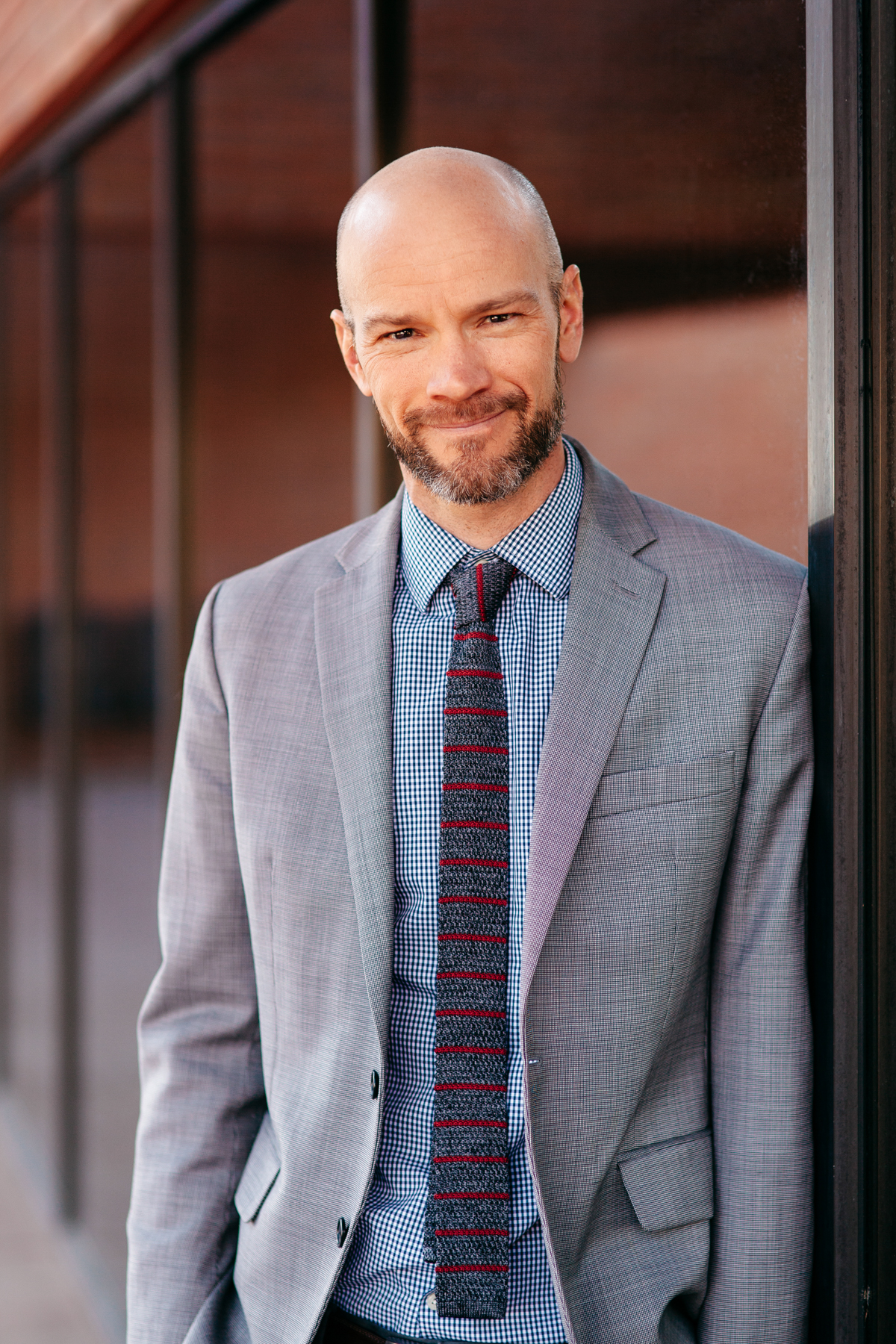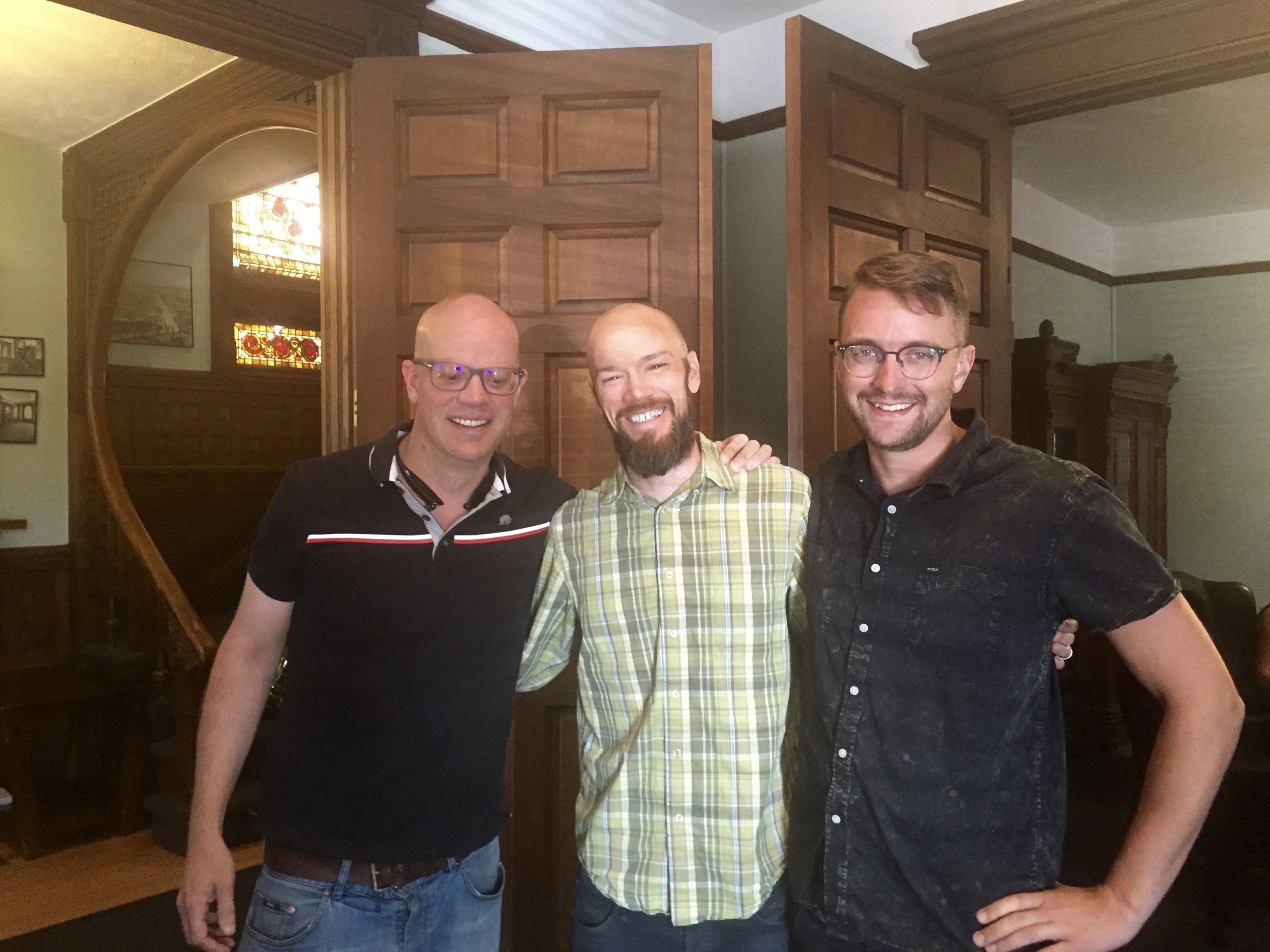Q&A — Brian Vicente, the Attorney Who Led Colorado’s Cannabis Legalization, Celebrates 15
June 17, 2025
Attorney Brian Vicente and his law firm Vicente, LLP have spent the last 15 years fighting for drug reform. As such, their efforts directly resulted in Colorado’s historic legalization of cannabis in 2012, creating a model that has swept the nation while also influencing other countries to explore repealing cannabis prohibition in favor of regulation. The landmark victory established Colorado as a beacon of hope for mass drug reform, an example that would be followed in waves in the years that have since passed.
The firm will be celebrating their 15th anniversary with a party on Wednesday at Meow Wolf that will serve as a gathering for many of the most influential people in cannabis and psychedelic reform and will feature Governor Jared Polis giving an opening toast which will be followed by a DJ set from Pretty Lights’ Chris Karns. It’s to be a well deserved celebration that marks the firm’s tireless efforts while allowing a glimpse into the future of drug reform the world over.
303 Magazine recently spoke with Vicente about what motivates him in his fight for drug reform, the history of cannabis prohibition and it’s racist roots, the long road that led to the landmark victory that was Colorado’s cannabis legalization, the future of the fight and much, much more.

303 Magazine: Hey Brian! Thanks for taking the time today. I usually like to start out these off by offering you the opportunity to kind of tell me a little bit about who you are and what you do in your own words.
Brian Vicente: My name is Brian and I’m an attorney. I’ve spent the last couple decades working to change drug laws in Colorado and across the country. I was one of the primary authors and ran the campaign to legalize cannabis in Colorado, which was the first place in the history of the world to do that, and have built up this law firm that continues to spread that model and provide legal services for cannabis have been increasingly working with psychedelic businesses.
303: I just have to say, thank you for the work you do. Now, just to go back a bit before we talk about exactly what you’re doing now, but I’m curious how did you get into law in the first place? Was that something you were always interested in or something you fell into? However you would like to describe it.
BV: I got into law because I wanted to try to make a positive impact in the world. There’s kind of two paths: You can do direct services, where you’re working for a charity and helping homeless people or you can try to change broader policies, right? That, to me, is what law school allowed me to understand: how to change bigger policies, bigger laws, to help people out. I really have always felt since I was young that the war on drugs was a failure on many fronts. I got to know medical marijuana patients and other people that were really finding value for medicine beyond just recreation, and was fortunate, really, in the early 2000s to launch this career expanding marijuana laws and representing cannabis businesses. It’s really been quite a ride.
303: I can imagine. When you started the firm and when you started out practicing law, I’m sure you had a certain mission statement or goal. Is that something that you can put into words, exactly what it is that you’re working to accomplish?
BV: I mean, I think it’s unique in that this sort of law firm began with this challenge to try to use capitalism to create positive change, right? We had to get this for profit entity and we really wanted to help dismantle the drug war. In doing that, we wrote the first laws to ever legalize cannabis. Now, 24 other states have those, as well as other countries. And it started here.
We also were one of the primary authors of the psychedelic law that passed in 2019 (The Natural Medicine Health Act) in Colorado that’s been mimicked by some other states. So it’s really been a way for kind of Coloradans to create sensible change in our backyard and then spread that around the world.
303: I think that’s beautiful, honestly, and it makes me curious about your personal relationship with cannabis and psychedelics. I don’t necessarily mean that as a user, if you are or are not. But I have to assume that dedicating yourself so fully to such a cause for 15 years must come from a place of passion. Can you tell me where that comes from, if there was a personal experience or something that really informed your passion?
BV: It started out as a social justice issue for me. If you look at cannabis prohibition and how it’s implemented particularly, it’s really racist and it’s just this failed policy.
Early in my career, I represented a guy — Damian lagoy was his name — who weighed about 95 pounds, and was a long term AIDS survivor. He used cannabis and literally it helped him stay alive because it allowed his stomach to to become less nauseated so he could keep taking his pills to keep him alive. The state kept trying to arrest him and take away his medicine and I just kept defending him pro bono over time. That really steeled my reserve and we publicized the case and it got a lot of press. I think it changed a lot of people’s hearts and minds, maybe including mine, that this is not just a plant that can free your mind and be used to create with but also something that really just plays such a bigger role in the healthcare realm. So there’s just some kind of big experiences that really contributed to my drive.
303: That’s got to be the kind of stuff that sticks with you. Now, to move a bit closer to the present, 15 years is a long time. Congratulations on the anniversary. The landscape, I imagine, has changed completely over time since you first started this fight. Can you tell me a little bit about first establishing your firm and what the impetus was for that?
BV: Yeah, it was interesting. We were the first firm ever to fly this cannabis flag and say, “Listen, we’re going to help establish regulated cannabis businesses. It’s not going to not going to be in the alleys or dorm rooms anymore. It’s going to be taxed and regulated in the public.” By doing that, it created this groundswell of people that kind of came out of the woodwork saying “We want to hire you guys. We want to start these businesses,” things of that nature. We started in Denver 15 years ago and now have offices across the country. As you know, more and more people and states and countries have said “I want to pass laws that allow cannabis to to be regulated and have this sort of non criminalized access.”

303: Can you tell me more about those days leading up to the actual legalization of cannabis? I think a lot of people perceive cannabis legalization in Colorado as happening overnight, almost, and that can’t be the case. What was the lead up to legalization and what it was like blazing that trail, no pun intended?
BV: I started working full time on cannabis reform in Colorado, starting in 2004, right. Eight years later, we became the first place in the world to legalize cannabis. During that eight years, there were a lot of challenges and campaigns that we ran to really to try to publicize this issue. Our thesis was: “If you could just get people to think about cannabis right and learn about it and what it does for sick people like the gentleman I referenced earlier or look at these tax projections and look how many people are getting arrested. What if we did something different?”
So, we just started publicizing local campaigns that we’d run in Breckenridge or Telluride or Denver or on CU Campus. We would be in the news, educating folks around. And there was a bit of “Look at these crazy guys running these campaigns. Well, they keep winning. What is this all about?”
It created enough of a groundswell of momentum that, when you combine in the medical marijuana — which was becoming more popular in the state — I won some lawsuits that allowed for the storefront model to begin. Prior to that, it was just individuals exchanging cannabis, you know. So when you put all that together, it sort of led to this momentum that led to that vote in 2012 where we really seeded the ground for eight years to get to that point, and then kind of shocked the world by by actually winning.
303: When Amendment 64 actually passed, what did it feel like? Relief, victory, like the fight was just beginning? Please whatever you can remember.
BV: It was stunning. We worked on it for a long time. But it was 100 years of prohibition that was toppled that night. The surprising thing was, from that moment on, my phone just would not stop ringing. You know, we had elected officials from around the globe that would want to visit Colorado. It wasn’t necessarily even because they supported legalization; they were just interested in looking at an alternative model into prohibition. We were crystallizing that for people. We were creating it. Even the President of Mexico called us. It was crazy. And it was crazy that it included people that were against the cannabis but who wanted to see what it’s all about. I think we were able to sort of educate the world that there was a different path possible. As it turns out, regulation is better than prohibition and this Colorado model has spread.
303: To elaborate on that a little bit, can you tell me a little bit more about how the landscape has changed since Amendment 64 passing versus what it looks like today?
BV: It was wild. You know, my kids are 11 and 12 and they’re going to grow up in a world where cannabis prohibition is a thing of the past, like us with alcohol prohibition. We’re like, “Well, that’s something my grandparents dealt with.” It doesn’t seem real, yeah? But, that was the world in 2012. It was a prohibition world. Fortunately, Colorado legalized, Washington State legalized pretty much simultaneously. And since then, we have a couple dozen other states that have come on board with similar regulatory models. And then other countries, right? Canada, we helped advise on that. Uruguay. These different countries that are really marching forward with stopping arresting adults for cannabis, that have a regulated model on producing taxes, jobs, and so I think it’s made the world a better place through regulation.
303: Something that you mentioned earlier that I found interesting, is the idea of legal prohibition and then mental prohibition. People still think of cannabis in this demonized kind of way in certain parts of the country. Could you maybe talk about the idea between legal prohibition and mental prohibition and the conversation around that?
BV: There was an intentional stigma in our country against cannabis that the federal government just pushed this narrative, this “Reefer Madness,” this “Just Say No,” these nonsense, publicly funded campaigns that they would run. It took a lot, right, for the for the average citizen who, maybe they use cannabis, maybe they don’t, to get over that misinformation or disinformation. It was done intentionally, and I think that’s where people visiting Colorado or neighboring states come in. At first, it is a shock. They’re like, “Geez, cannabis stores, that’s crazy.” But, you know, over time, I think they read about all the tax revenue coming in. They read about jobs. They meet people that work in this industry and they’re like, “These are just cool people.” And then, often their friends will start trying cannabis at night to go to bed and will think, “Well, that’s not the worst thing in the world.” I think there is a stigma still, but it’s shifting over time. It’s science based now, as opposed to sort of “Reefer Madness” hysteria.
303: I would like to talk a little bit more about Vicente, LLP’s Hemp and Cannabinoids Department. I’ve heard of it and I’ve read a little bit about it, but I don’t know a lot about it, and I would just like to know a little bit more. Can you tell me what its specific purpose is and exactly how it came to be established?
BV: Yeah, this is super interesting, man, and it’s funny, Thomas. You know, I’ve been working on trying to legalize cannabis for a couple decades, and for the longest time, we’re like, “All right, we’re going to change state laws and that’s what’s going to get it done.” But in the last couple years, there’s been other, I call them “force multipliers,” like different angles that have have entered the game and have pushed the world closer to legalization and one of them is intoxicating hemp, right? There are giant, giant swaths of our country where you can’t buy regulated cannabis, like you can in Colorado, but you can buy intoxicating hemp products, such as drinks, gummies. A lot of the South doesn’t have legalization, but they do have intoxicating hemp. And the crazy thing is, it’s literally the same THC.
What happened is, in 2018, the federal government, via the Farm Bill, said, “Hey, hemp is different than cannabis and and hemp plants have low THC, therefore they’re legal and states can regulate them if they want.” There’s a bit of a loophole there where, if you get enough of those legal hemp plants together, which have low THC, and you distill them down into oil, it’s powerful THC, right? And then that is legal to put into your gummies and drinks. It’s really opened up tons of our country, you know, the Texas’s and the Florida’s of the world to accessing cannabis drink or hemp drinks and and gummies and so we as a law firm help spread those laws that allow for that access, but also represent a lot of the companies that are selling those products, whether its beverages or gummies or anything like that.
303: I do want to talk about psychedelic and psilocybin legalization as well. How does the conversation differ from cannabis? Can you tell me a little bit more about the Natural Medicine Health Act?
BV: Another landmark piece of legislation that our firm played a big role in passing was this Natural Medicine Act that passed in 2019 in Colorado, right? At that point, Colorado joined Oregon as really the only places in the world where adults can access certain psychedelic natural medicines and use them, really for medical purposes or for spiritual or recreational purposes, right? It’s not a lot of judgment there. Colorado’s law is unique in that we allow anyone 21 over to really possess or propagate these sort of products themselves. Largely, psilocybin is where it’s at. But then we also have these treatment centers or healing center where individuals can apply for business licenses and become licensed to sell psilocybin to folks that are 21 and over. Again, it could be someone with PTSD. It could just be a person looking for a spiritual or religious experience. They can then use the product on site, which is interesting, right? You can’t buy it like at a dispensary and go home or go to Red Rocks. You have to use it on site and these are the ways that we get laws passed. It’s not ideal, but it is something. But it’s very unique, and I think in terms of how we’re regulating another product that’s been previously unregulated. It’s very exciting for the state, but it’s also a smaller population of users and it’s a lot more of medical focus as opposed to recreational.

303: Let’s talk about the 15 year celebration which will be held at Meow Wolf. Is it mainly just members of the firm attending or is it people associated in the field or is it bigger than that? I would love to hear about the music a little bit as well.
BV: We are gonna have about 450 of, I think, the most influential people in drug policy from around the world who will be at this party. It’s about 100 of our staff and close friends. But then we also are overlapping this party with the MAPS Conference, which is the largest psychedelic conference in the world, and it’s in Denver that week. We intentionally are throwing the party that week in order to draw a bunch of clients and friends and influencers from that crowd. It’ll be a lot of Colorado business owners on the cannabis side, but also some national folks flying in. It’s important as there’s such a tie historically between cannabis and music and psychedelics and music and we’ve been fortunate enough to represent a lot of big artists in this space: Willy Nelson and Snoop Dogg, local guys, other bands like The Disco Biscuits. People like that. For us, having it at Meow Wolf, which is more of like a psychedelic themed event center, and then having Chris Karns from Pretty Lights DJ means a lot. Obviously, with the national footprint or international footprint, it’s really exciting. We’re also thrilled that Governor Polis will be coming to give a toast and speak to the attendees. We’re very excited about it.
303: I really just have one more big question for you before I let you go. I’m curious about what the fight looks like moving forward. What does the future of legalized cannabis and psychedelics look like? What are the challenges and when will come the successes?
BV: I think it’s a one way street. I think we are moving towards federal and ultimately international legalization. How curvy that street is is the question, you know, [laughs] but I think there are a lot of things in our favor. We’ve shown the model works in Colorado and a bunch of other states. We have hemp beverages that are sort of energizing a lot of people to push forward. We have a lot of Native American tribes that are now legalizing cannabis and pushing for it there. I think when you get all these pieces together, we’re gonna see a pretty profound federal change in the next five or 10 years. And I think the Colorado model will be a big part of how that those ultimate laws look.
303: Well, I know I’m excited for the future and I think it looks bright. I just want to thank you for taking the time to talk with me. This was a great conversation and it was a pleasure to meet you.
BV: I really appreciate the conversation. It was fun to touch base with you, man. Take it easy.
For even more information on the work Vicente, LLP is doing, check out there website here!
Search
RECENT PRESS RELEASES
Related Post

![Officials power up first-of-its-kind project that could unlock low-cost energy: ‘[Will] he](https://stockwatchindex.com/wp-content/uploads/2026/01/a123c5d0f48cc9cf8cce0c0c96f4fef3-aD1Fd5-500x383.jpg)


